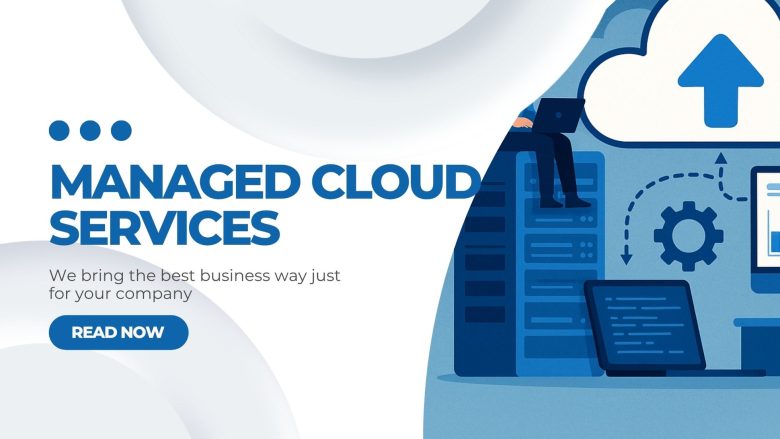
Cloud computing has become a cornerstone of digital transformation. As businesses shift more of their operations online, the demand for agile, secure, and scalable solutions has never been higher. One of the most effective ways to achieve these goals is through managed cloud services. Managed cloud services allow organizations to outsource the management of their cloud infrastructure to an experienced third party. These providers oversee everything from migration and configuration to monitoring, security, and ongoing support—freeing internal teams to focus on core business operations.
Why More Companies Are Choosing Managed Cloud
Managing cloud environments requires specialized knowledge, 24/7 oversight, and continuous optimization. For many businesses, especially small and midsize enterprises, building an in-house cloud team isn’t practical. That’s where managed services come in. By partnering with a dedicated provider, companies gain access to expert support while maintaining cost control and flexibility. The primary advantages of managed cloud services include:
- Operational efficiency: Free up internal resources by outsourcing time-consuming cloud tasks.
- Enhanced security: Benefit from advanced tools and practices for protecting data and systems.
- Cost predictability: Enjoy transparent pricing models and avoid unplanned expenses from mismanaged resources.
- Scalability: Easily adjust services to match business growth or seasonal demand changes.
These services are particularly valuable for companies undergoing digital transformation, expanding into new markets, or seeking better resilience and performance from their IT infrastructure.
What Managed Cloud Services Include
A comprehensive managed cloud solution typically covers:
1. Cloud Migration and Setup
Moving applications and data to the cloud requires careful planning. Service providers assess current systems, create a migration roadmap, and execute the transition with minimal disruption.
2. Infrastructure Management
This includes configuring servers, storage, databases, and networking elements for optimal performance. Providers monitor systems in real-time and implement updates as needed.
3. Data Backup and Disaster Recovery
Data loss can be catastrophic. Managed cloud services often include automated backup routines and disaster recovery strategies that ensure data is recoverable in the event of hardware failure or cyberattacks.
4. Performance Optimization
Through analytics and monitoring, providers continually optimize workloads and resource usage to ensure applications run smoothly and cost-effectively.
5. Security and Compliance
Managed cloud providers use encryption, identity access management, firewalls, and intrusion detection systems to safeguard environments. They also help businesses stay compliant with frameworks like HIPAA, PCI DSS, and GDPR.
6. 24/7 Support
Issues don’t follow a 9-to-5 schedule. Around-the-clock support ensures that problems are addressed swiftly, minimizing downtime and protecting productivity.
Who Benefits Most from Managed Cloud Services?
Organizations across a range of industries can benefit, but managed cloud is particularly useful for: – Startups and small businesses without dedicated IT staff – Mid-sized companies with growing infrastructure needs – Healthcare providers managing patient data under HIPAA – Financial institutions requiring secure and compliant systems – eCommerce companies needing uptime and traffic scalability For example, a healthcare company might use a managed cloud provider to host electronic health records (EHR) in a HIPAA-compliant environment, while a growing online retailer may rely on elastic cloud resources to handle seasonal traffic spikes.
Managed Cloud Service in Nashville
As Nashville continues its rapid growth in healthcare, education, and tech sectors, local businesses are increasingly seeking digital solutions that support agility and scalability. A managed cloud service in Nashville helps organizations meet these needs with personalized support, compliance expertise, and local responsiveness. By working with a regional provider, companies gain not only technical excellence but also a service partner who understands their unique operational and regulatory landscape.
How to Choose the Right Provider
When evaluating managed cloud service providers, consider the following: – Experience and certifications: Look for providers with cloud partnerships (e.g., AWS, Microsoft Azure, Google Cloud) and industry certifications. – Customization: Avoid one-size-fits-all. The provider should tailor services to meet your business needs and goals. – Security focus: A strong cybersecurity framework is non-negotiable. Ask about encryption, threat detection, and data recovery. – Transparent pricing: Understand what’s included in your monthly fee and what could incur extra charges. – Customer support: Opt for providers with responsive, knowledgeable support teams that offer 24/7 availability.
Empower Your Business with Cloud Confidence
The right managed cloud provider delivers more than just technical support—it delivers peace of mind. By taking over the complexities of cloud operations, these services enable organizations to grow faster, operate smarter, and stay secure in an unpredictable digital world. Whether you’re launching a new app, scaling your eCommerce business, or modernizing legacy systems, managed cloud services offer the agility and protection needed for success. With the right team at your side, the cloud becomes less of a challenge—and more of a competitive advantage.





2 Comments